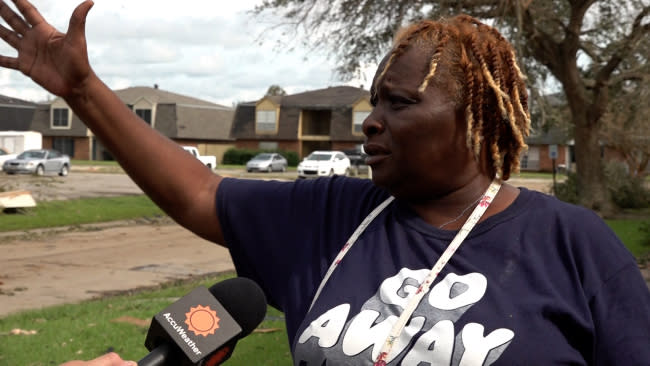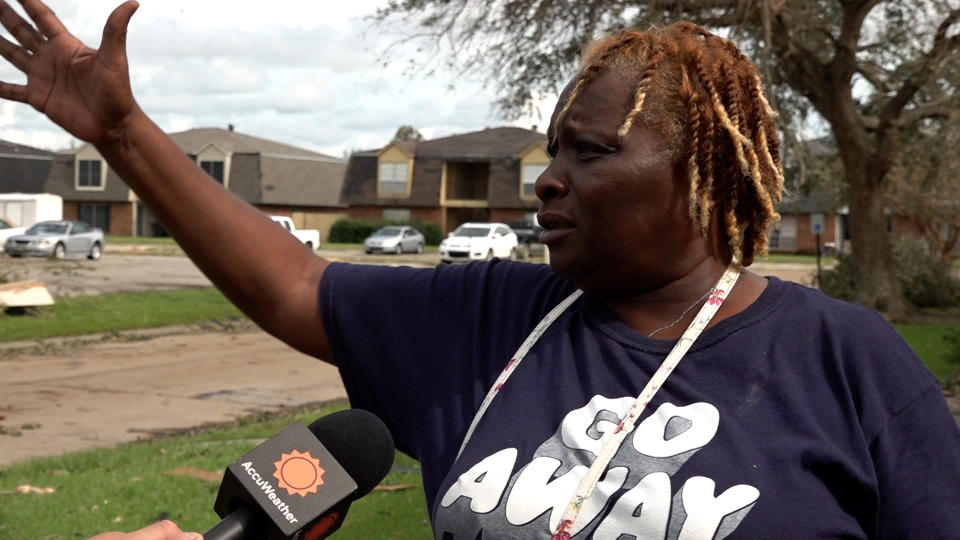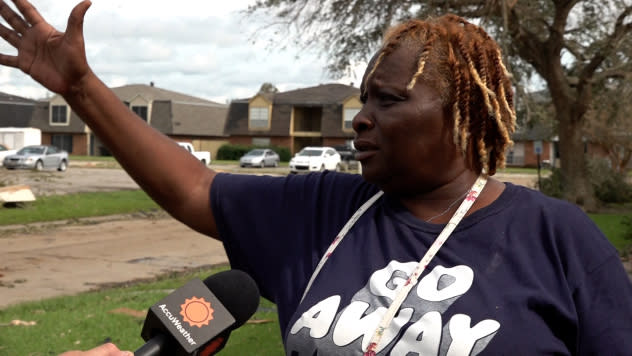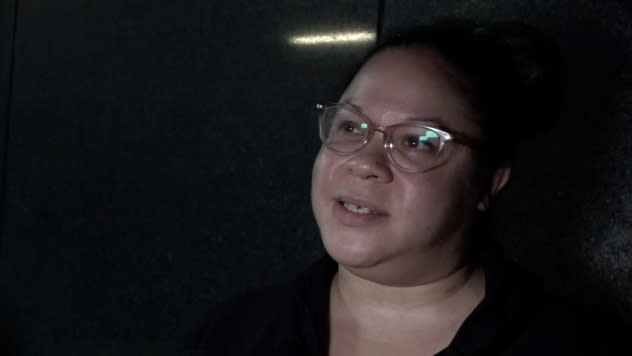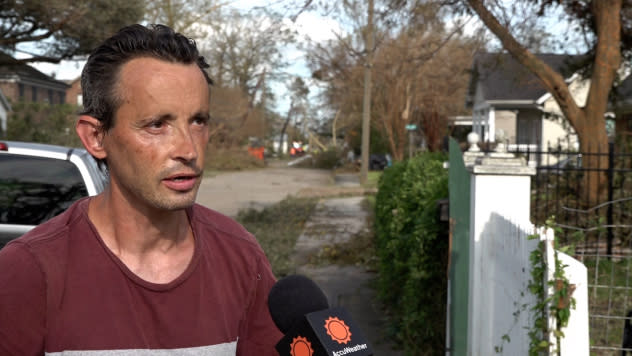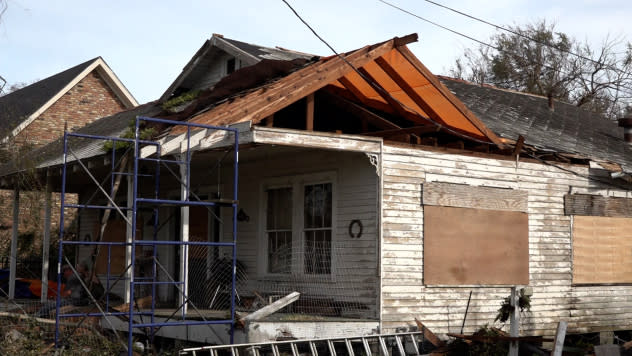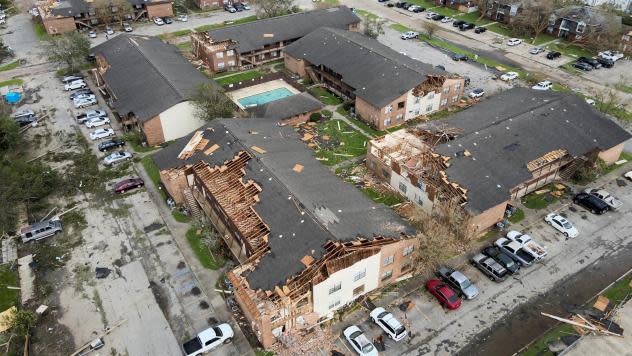Survivors share why they stayed to face Hurricane Ida
As Hurricane Ida barreled toward the coast, some residents made the difficult decision to stay and endure the storm.
For many, the decision was not made lightly. Only a year prior, Hurricane Laura had reminded the state the destruction a Category 4 hurricane could cause, and the 16th anniversary of Hurricane Katrina's landfall weighed heavily over city of New Orleans. Enduring the hurricane wouldn't just facing the storm, but also the challenges that followed.
Many in Ida's path were left with no electricity, no water and little way to stay cool in the sweltering heat that was beginning to build. Gasoline became a precious commodity. The Louis Armstrong New Orleans International Airport canceled flights to and from the airport, making for one less way for people to get in or out of the city.
"Can't flush the toilet, we ain't got no water, we ain't got no electric and they told us we're going to be out of this for six to seven weeks," Sandra Johnson told AccuWeather National Reporter Bill Wadell. "Man, we can't survive that."
 |
Sandra Johnson tells AccuWeather National Reporter Bill Wadell about the damage to her apartment complex along with the lack of water and electricity. (Bill Wadell) |
Johnson is one of the thousands of customers in the area who relies on Entergy for electricity and is now without power after the storm toppled a major transmission tower into the Mississippi River. Thousands of miles of transmission lines and hundreds of substations are also out of service.
As of Friday, five days after Ida made landfall, the company said it had restored power to roughly 225,000 customers. It estimated it would restore the majority of its customer's electricity by Sept. 8, and by Sept. 25 for the vast majority of customers in the Irish Bayou and Venetian Isles area along Highway 11.
CLICK HERE FOR THE FREE ACCUWEATHER APP
But for some, the decision to evacuate simply wasn't even on the table.
"People took this one serious," Martha Wiggins told Wadell. "This is a serious thing, and unfortunately, I think for a lot of people it comes down to financially. Evacuating is expensive and not everybody has the ability to do it."
 |
"Unfortunately I think that money comes down to it for a lot of people," New Orleans resident Martha Wiggins told as to why some people may have chosen to endure Hurricane Ida rather than evacuate. (Bill Wadell) |
Such was the case of Gulf Coast resident Kaylee Ordoyne, 26.
"If I would have had the money to evacuate, I would have -- for my babies," Ordoyne told The Associated Press. A mother of two children, 2 and 4, she had only been able to shelter her family from Ida at a relative's home. Then the roof collapsed, trapping them in a kitchen corner with water up to their ankles.
While they had made it out of the storm, the trailer Ordoyne had spent her savings on hadn't. It hadn't been insured, and without the power or electricity needed for her job at a wireless company, she has no paycheck.
"People will say, 'Well, I'm just going to ride it out,'" Craig Colten, a professor emeritus at Louisiana State University told the AP. Colten studies community resilience and adaptation to changing environments in coastal Louisiana. "But a lot of the time, people will ride it out because they don't have the means to escape, and that, in large measure, means an automobile and enough money to buy gas."
Wiggins added that she believed the memory and trauma from Katrina, especially with Ida forecast to make landfall on the 16th anniversary of the infamous storm, may have played a role in some residents' decisions.
For Houma resident Danny Robichaux, he and his family chose not to evacuate out of fear of what they would or wouldn't return to after the storm.
 |
Houma resident Danny Robichaux tells AccuWeather National Reporter Bill Wadell about how he and his family weathered Hurricane Ida. (Bill Wadell) |
"Most people, they left, and we didn't want to come back to see what devastation we had to come and face," Robichaux told Wadell.
While he had been able to save some valuables, there was nothing Robichaux could do as Ida tore the roof from his home other than move his family and some belongings from the exposed living room.
"Scared me a good little bit because I was never in a storm where your roof comes off," he told Wadell.
 |
Hurricane Ida tore the roof from Houma resident Danny Robichaux's home as the Category 4 hurricane tracked through Louisiana. (Bill Wadell) |
"Boom!"
That had been what Johnson had heard during the storm. With the exterior brick wall compromised and the damage to the ceiling of the unit above her own, water had started to pour in soaking her belongings. Now, she's scared to go back into the apartment complex out of fear the structure will collapse.
 |
The apartment complex that Sandra Johnson lived in was severely damaged during Hurricane Ida. (Bill Wadell) |
"I ain't ever been through a storm like this all my life," Johnson said. She has lived in Houma for five years. While her family had left ahead of the storm, Johnson had decided to ride it out.
But while she and others had made it out of the hurricane, many of their belongings were unsalvageable. And for Johnson, help felt far out of reach.
"My apartment is all destroyed and these people act like they don't care about nobody back here," Johnson said. "Everybody needs help."
Reporting by Bill Wadell.
For the latest weather news check back on AccuWeather.com. Watch AccuWeather Network on DIRECTV, DIRECTVstream, Frontier, Spectrum, fuboTV, Philo, and Verizon Fios. AccuWeatherNOW is streaming on Roku and XUMO.

 money
money 